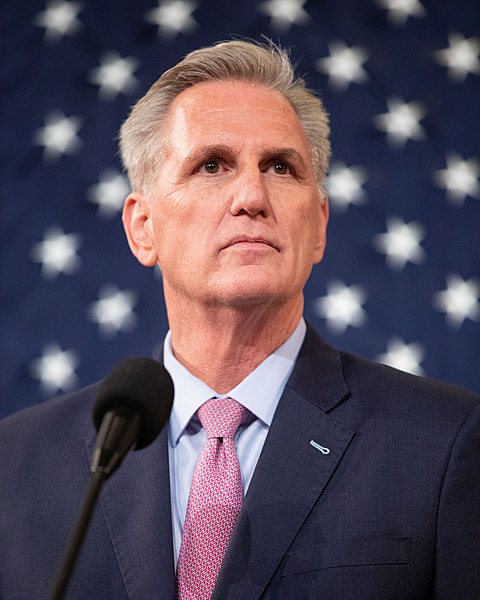
The Republican-controlled House of Representatives is set to pursue significant spending cuts this week, despite the unlikelihood of these measures becoming law and the
potential for a partial government shutdown by the end of the week.
House Speaker Kevin McCarthy had initially worked to reach a spending agreement with Democratic President Joe Biden earlier this year to avoid such a scenario. However, some members of his own party are demanding deeper cuts, which would almost certainly be rejected by the Democratic-controlled Senate.
If Congress does not approve funding for the new fiscal year starting on October 1, hundreds of thousands of federal workers could face furloughs, and numerous services, from financial oversight to medical research, could be suspended.
While Congress often misses this deadline and resorts to temporary spending bills, McCarthy has struggled to secure support for an extension due to opposition from hardline Republicans. With a narrow 221-212 majority in the House, McCarthy has few votes to spare.
Rather than proceeding with a temporary extension, McCarthy plans to advance legislation aligning with conservative priorities. On Tuesday, the House will consider four spending bills for the upcoming fiscal year that include new restrictions on abortion access, the reversal of an $11 billion Biden administration climate initiative, and the resumption of construction on the Mexico-U.S. border wall, a project initiated by former President Donald Trump.
It's expected that these bills will face rejection in the Senate, and the White House has indicated that President Biden would veto two of them.
McCarthy hopes that pursuing these measures will earn goodwill and eventually allow him to pass a stopgap spending bill that would avert a government shutdown.
However, Representative Matt Gaetz, a vocal critic of McCarthy, has expressed his unwillingness to support a stopgap, even if it leads to a shutdown. Other hardline Republicans, like Representative Marjorie Taylor Greene, oppose even bringing the spending bills up for debate on the House floor.
These hardliners, part of the House Freedom Caucus, have advocated for reducing agency spending to $1.47 trillion, $120 billion less than what Biden and McCarthy had agreed to in May.
It's important to note that these proposed cuts represent only a fraction of the overall U.S. budget, which is set to reach $6.4 trillion for the fiscal year. Lawmakers are not considering reductions to popular benefit programs like Social Security and Medicare, which are expected to grow significantly as the population ages.
Meanwhile, the Senate plans to move forward with a stopgap spending measure on Tuesday. If this measure passes, it could force McCarthy to rely on Democratic votes to secure its passage as well, potentially risking backlash from his conservative wing and his own political standing.
Former President Trump has urged Republicans to pursue a government shutdown in an attempt to disrupt his two federal criminal cases. The Justice Department has stated that criminal prosecutions would continue in the event of a shutdown. Photo by White House photo by US House Photography, Wikimedia commons.






































